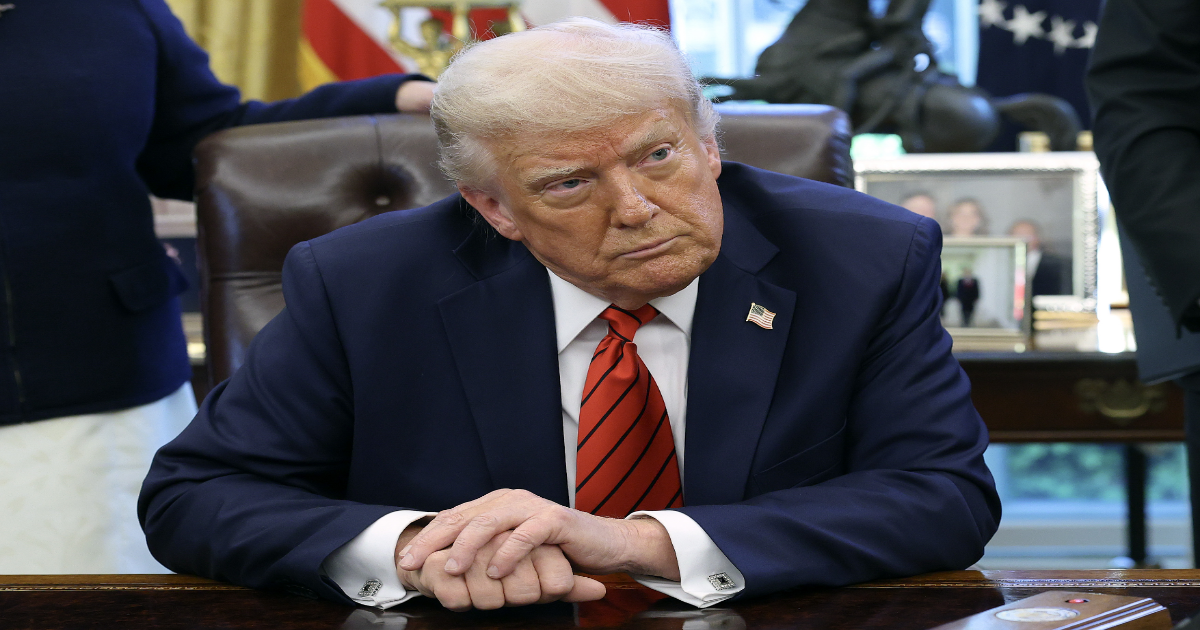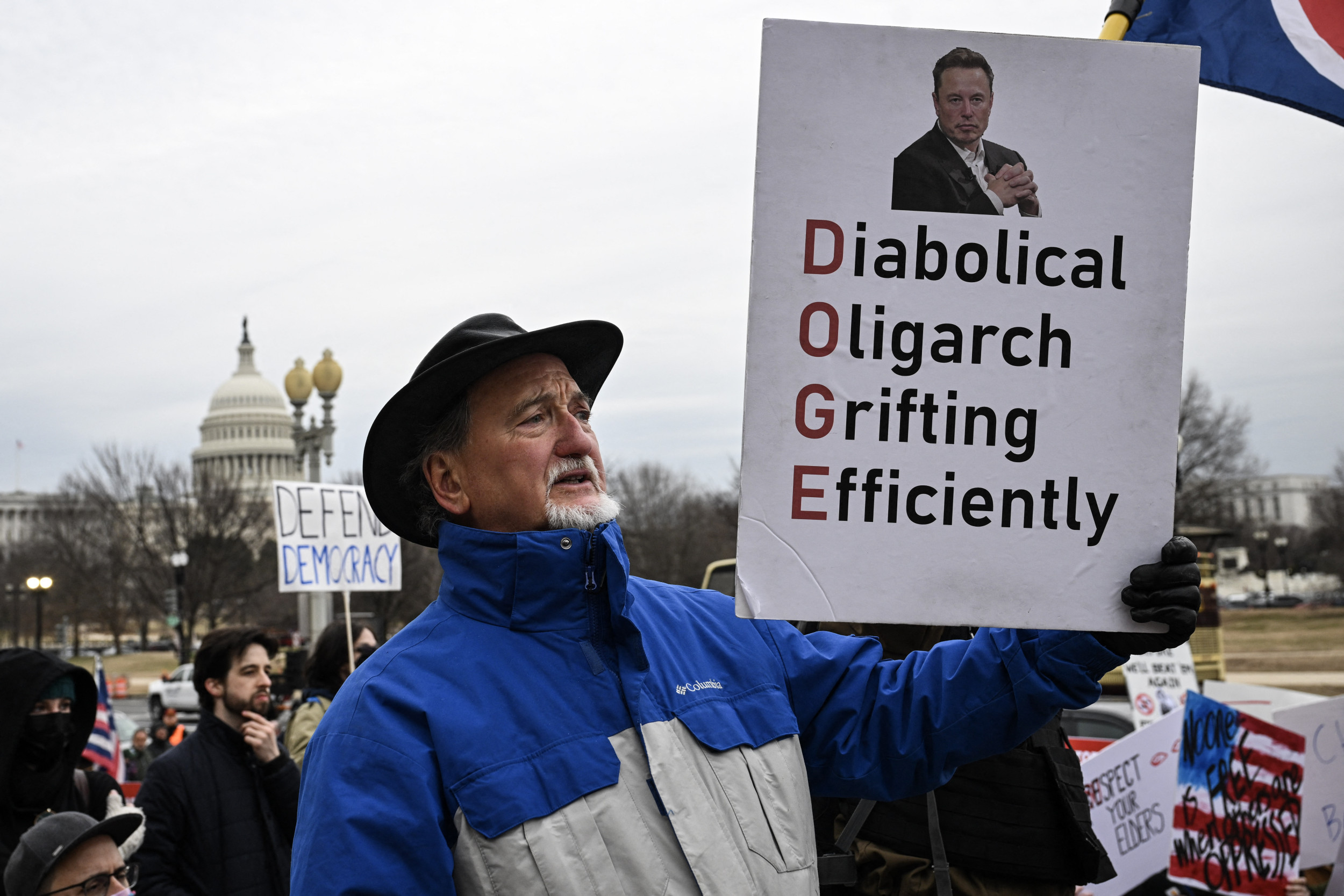President Donald Trump on Thursday indicated that the United States may ease off further tariff increases on Chinese goods, signaling a possible de-escalation in the trade tensions that have rattled global markets. At the same time, he said a final decision on the future of TikTok’s U.S. operations may be postponed until progress is made on broader trade negotiations.
What to Know:
- Trump said he may pull back from raising tariffs further, citing consumer impact.
- China, which recently said it won’t engage in a “numbers game” with tariffs, appears to welcome the pause.
- The U.S. has already imposed a 145% rate on Chinese imports after earlier retaliation.
- Trump has delayed action on TikTok’s U.S. operations, saying any spin-off deal would wait on trade outcomes.
- Despite communication, high-level talks between Beijing and Washington remain limited.
Stay with Newsweek for the latest.
People protesting against US President Donald Trump and Elon Musk’s Department of Government Efficiency (DOGE) outside of the US Department of Labor near the US Capitol in Washington, DC, February 5, 2025. People protesting against US President Donald Trump and Elon Musk’s Department of Government Efficiency (DOGE) outside of the US Department of Labor near the US Capitol in Washington, DC, February 5, 2025. DREW ANGERER/AFP/GETTY
On Thursday, District Judge Ellen Hollander imposed a preliminary injunction heavily restricting access to Americans’ government-held Social Security data from Elon Musk‘s Department of Government Efficiency (DOGE).
Newsweek contacted Musk for comment on Friday outside of regular office hours via emails sent to the Tesla and SpaceX press offices.
Following his inauguration on January 20, President Donald Trump launched DOGE, which, despite its name, isn’t a full government department, under Musk’s leadership to slash what they regard as wasteful federal spending.
DOGE has since battled to access sensitive data, including Treasury records which it argues is necessary for its work. However, critics have raised privacy concerns and filled a series of lawsuits seeking to keep certain data restricted.
Thursday’s ruling by Hollander was in response to a case brought against DOGE by a coalition of labor unions and retirees who argued giving the new body access to Social Security data breached privacy and was a security risk. Hollander had already imposed a temporary restraining order limiting DOGE access in March.
Under the terms of the preliminary injunction, DOGE employees can only access Social Security system data if its been redacted to remove anything personally identifiable, and if they have received training and passed background checks.
Read the full story by James Bickerton on Newsweek.

